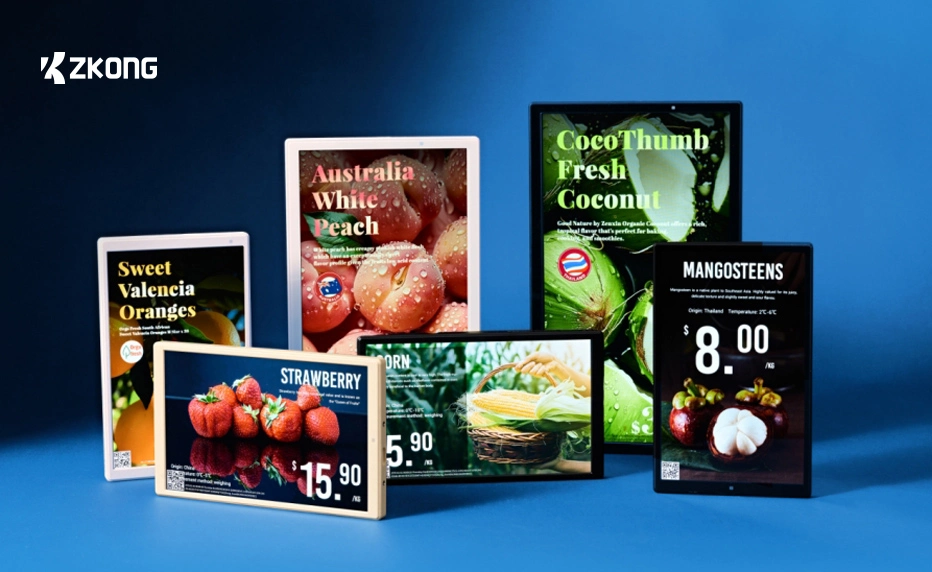The development of any industry is inseparable from technological innovation, and the retail industry is no exception, even though it may not seem directly connected to technology. This innovation lies in artificial intelligence and big data. Today, beyond traffic statistics and facial recognition, the most widely applied technology in the retail sector is ESL price tags. The reason for their widespread use is that they address the numerous shortcomings of paper price tags, bringing a fresh perspective to the industry.
ESL price tags offer several advantages and unique features:
Smart Price Changes with Low Error Rates:
ESL price tags enable intelligent price adjustments without manual intervention, reducing errors and mistakes.
Fast Price Updates, Saving Time:
Fully automated price changes ensure real-time synchronization with the backend database, saving significant time.
Wireless Communication with Accurate Data:
High-efficiency RF wireless communication and bidirectional data verification ensure timely and accurate data transmission.
Intelligent Display for Effective Decision-Making:
The digitalized operation model provides managers with decision-making data, enhancing competitiveness and creating additional profit opportunities.
Long Lifespan and Cost Savings:
With a lifespan of up to five years, ESL price tags effectively reduce equipment and paper/ink expenses, lowering uncontrollable costs.
Eco-Friendly, Low-Carbon, and Energy-Efficient:
Paperless display technology is environmentally friendly and promotes a low-carbon footprint.

Large Supermarkets and Hypermarkets
Thanks to their numerous advantages and features, ESL price tags are widely used in the retail sector, including large supermarkets, boutique specialty stores (e.g., clothing, cosmetics, electronics, jewelry), and chain stores.
Large supermarkets and hypermarkets use ESL price tags to display product information and prices, improving the shopping experience for end customers, enhancing brand image, and synchronizing online and offline prices to strengthen customer loyalty.
ESL price tag systems are equipped with massive data collection capabilities, laying a solid foundation for the big data era. These systems enable the establishment of unified supply chains for supermarkets and hypermarkets, allowing for centralized and precise management from procurement to logistics and sales, thus improving overall operational efficiency.
Chain Stores
Customizable ESL price tag solutions for chain stores enhance overall brand image.
ESL price tags support the fine-tuned management of chain stores, focusing on the relationship between people, products, and locations. Centralized servers synchronize real-time information, allowing uniform control over all chain units. Not only do ESL price tags save substantial labor costs for chain stores, but they also optimize staffing structures and improve price control.
With ESL price tag display systems, real-time price changes can be implemented, enhancing supermarket management capabilities and enabling precise control over marketing effectiveness across various branch locations. This boosts overall sales performance for chain stores.

Boutique Specialty Stores
ESL price tags are also applied in boutique stores, high-end stores, import/export stores, and wine shops, where they reduce manual effort, strengthen price control, and highlight product value.
Boutique smart supermarkets seamlessly connect online and offline operations, allowing customers to select products online, pick them up in-store, and benefit from consistent pricing with precise location tracking.


